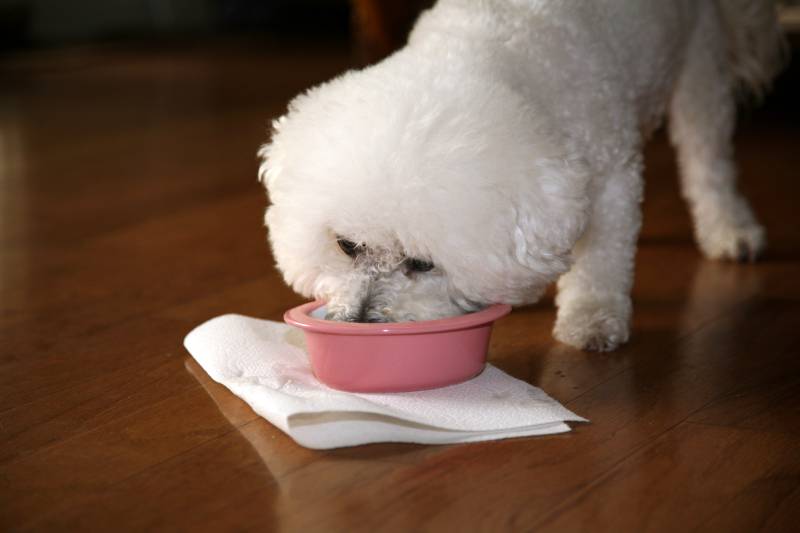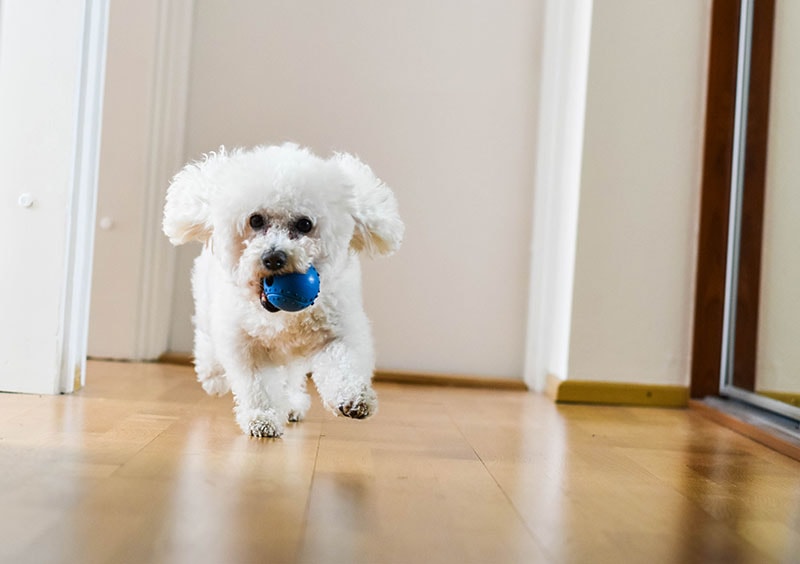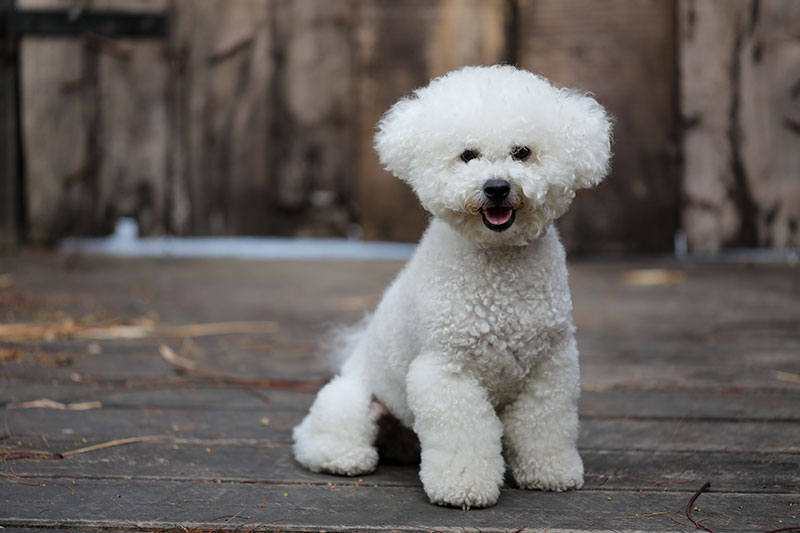Click to Skip Ahead
Bichon Frises are small, healthy dogs. Bichon Frises tend to live quite a long time, 16 years usually, however, it could even be as much as 20 years. They aren’t prone to many health issues, which means they often live long and healthy lives.
However, this lifespan can vary from dog to dog, and there are a few things you can do to help your canine live longer.
Bichon Frise Average Lifespan
The average Bichon Frise lives 14 to 16 years. They aren’t prone to many genetic conditions and tend to live very long lives. Some may even live for 20 years or more, depending on their health and care.
Of course, sadly, some may even not make it to 14 years, especially if they inherit a genetic condition that causes them chronic issues.

How to Care for Your Bichon Frise for a Long Lifespan
There are several ways you can help your canine live a long time. Many of these involve basic care and diet, but they are very important in the long run.
Feeding & Diet
Dogs are what they eat, so you should choose a quality food for your canine. Choose a diet that is meat-based, grain inclusive and suitable for their age and size. Grain-free diets may be associated with certain health problems, so they should be avoided unless your dog is allergic to grains (which is rare). Grain-free diets tend to be high in legumes instead.
Only feed your dog the amount they need, as obesity can take years off of their life. You don’t want them consuming too little food, either. You need to keep an eye out for their weight and adjust feeding as necessary.

Healthcare
Healthcare plays a huge role in your dog’s health. They need regular vet visits to ensure that they’re healthy and to take care of any health conditions that pop up. Conditions that are treated early are much less likely to cause complications, which can be chronic and potentially deadly.
Furthermore, healthcare is usually needed at the end of your dog’s life. Many canines will end up with some sort of chronic condition such as arthritis, but if this condition is properly managed, many dogs will live well for a long time.
Exercise
Your canine needs to keep moving to stay healthy. Otherwise, obesity and other health problems are much more likely to occur (and more likely to result in complications). We highly recommend that you exercise your canine daily for at least half an hour.
These dogs don’t need tons of exercise. However, they do need to get daily mind and body exercise.

Grooming
Bichon Frises require a decent amount of grooming. Their fur is pretty long and will keep growing. Therefore, they need to be trimmed professionally every few months. You’ll also need to brush them at home and bathe them occasionally.
Grooming helps prevent discomfort and skin problems. While skin problems are usually not deadly, they can be a significant cause of irritation and distress for your pupper. Therefore, it’s important to stay on top of grooming.
The Life Stages of a Bichon Frise
Puppy Stage
This stage lasts from birth until about 10 months, as these dogs are quite small. They grow rapidly but meet their full-grown size pretty quickly. They will develop their personality during this time. Now is the best opportunity to socialize these dogs, and nutrition is increasingly important while these puppies are growing.

Adolescent Stage (Young adult)
Adolescent stages last from about 10 months to 15 months and include the dog hitting sexual maturity. They may be a bit more stubborn during this time, as human teenagers might! They may also exhibit more independence and hyperactivity.
Adult Stage (Mature adult)
Throughout most of a dog’s life, they will be an adult. They require less intensive care during this stage, but it’s still important to keep them healthy and thriving. The care you give them now will affect their senior lifespan.

Senior Stage
This stage lasts from about 9 years of age until the end of life. During this time, the Bichon Frise may show signs of aging such as graying hair, reduced vision or hearing, joint stiffness, or cognitive decline. Most healthcare is often needed at this time, too.
How to Tell Your Bichon Frise’s Age
The best way to tell your Bichon Frise’s age is to take them to a vet. If they are a puppy, the vet can often give a pretty accurate explanation of their age based on what teeth have come out. If they are older, the wear and tear on their teeth will be looked at. Usually, this gives you a fairly accurate estimate, but certain factors can make a dog’s teeth wear faster or slower.
However, as the dog ages, it becomes harder and harder to tell their age.
Final Thoughts
Bichon Frises can live up to 16 years, usually. Of course, there are ranges on either side of this span. Some may only live 12 years, especially if they have an underlying illness. Others may live for 20 years—it all depends on their health, genetics and a bit of luck.
See also:
- 10 Dog Breeds Similar to Bichon Frise (With Pictures)
- Teacup Bichon Frise: Breed Info, Pictures, Temperament & Traits
Featured Image Credit: Spill Photography, Shutterstock











